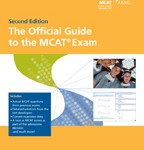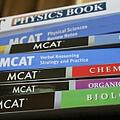Since the introduction of the biochemistry section to the Medical College Admissions Test (MCAT), premedical students across the country have bemoaned its addition to the exam. As a first-year medical student who just finished my biochemistry block, I am coming to realize the importance of learning the Kreb’s cycle and other seemingly arbitrary facts. This article is intended to provide tips and tricks on how to learn and memorize some of the more complex portions of the biochemistry section of the MCAT. I also hope to provide some clinical relevance to help motivate you in studying this dense material.
MEdical School News and MCAT Strategy
Stay current with the latest med school admissions news and proven MCAT strategies.
Posts about MCAT (2):
A Guide to Reviewing MCAT Practice Exams
When studying for the Medical College Admissions Test (MCAT), most students tend to focus on studying through content review and reading preparation books. However, an essential method for preparing for this exam is taking numerous practice tests to prepare for the format as well as the arduous length of the exam. A critical portion of this practice is to effectively review exams in order to assess strengths and weaknesses in both content and testing strategies. Below we will discuss tips to optimizing your practice exams and strategies for reviewing them.
6 Common Questions on the CARS section of the MCAT
Daily, physicians face challenges to apply, analyze, and communicate scientific and medical information. The ability to communicate and analyze is a softer skill that is difficult to develop compared to the effort it takes to memorize something like the Krebs’s cycle. This vital skill set has become emphasized by the Association of American Medical Colleges (AAMC) through the production of the Critical Analysis and Reasoning Section (CARS) on the Medical College Admissions Test (MCAT). CARS is the section that most premedical students struggle with and requires the most time to build skills. Identifying question types on your exam will allow you to establish patterns of performance and test trends. Below we will discuss the six most common types of questions you will encounter on the CARS section and how to best approach them.
8 Things to Consider When Creating a Study Schedule for the MCAT
The Medical College Admissions Test (MCAT) is one of the most challenging graduate school entry exams. While the content and strategy is difficult, it is essential for students to focus on planning when preparing for this lengthy exam. A successful MCAT preparation begins with creating a study schedule that manages to accommodate your other commitments while meeting your preparation needs. Here are eight tips to assist you in preparing your own study schedule for the exam:
Five Tips for Successful MCAT Prep: Part 2
Five Tips for Successful MCAT Prep: Part 1
 The MCAT is a beast of an exam – there’s no way around it – and for many of you, it will also likely be your first real challenge academically, in terms of necessary preparation, exam intensity and sheer volume of subject matter. It won’t be easy, regardless of your IQ or SAT scores, but with a little bit of assistance and a whole lot of dedication, it is absolutely doable and within your reach.
The MCAT is a beast of an exam – there’s no way around it – and for many of you, it will also likely be your first real challenge academically, in terms of necessary preparation, exam intensity and sheer volume of subject matter. It won’t be easy, regardless of your IQ or SAT scores, but with a little bit of assistance and a whole lot of dedication, it is absolutely doable and within your reach.

